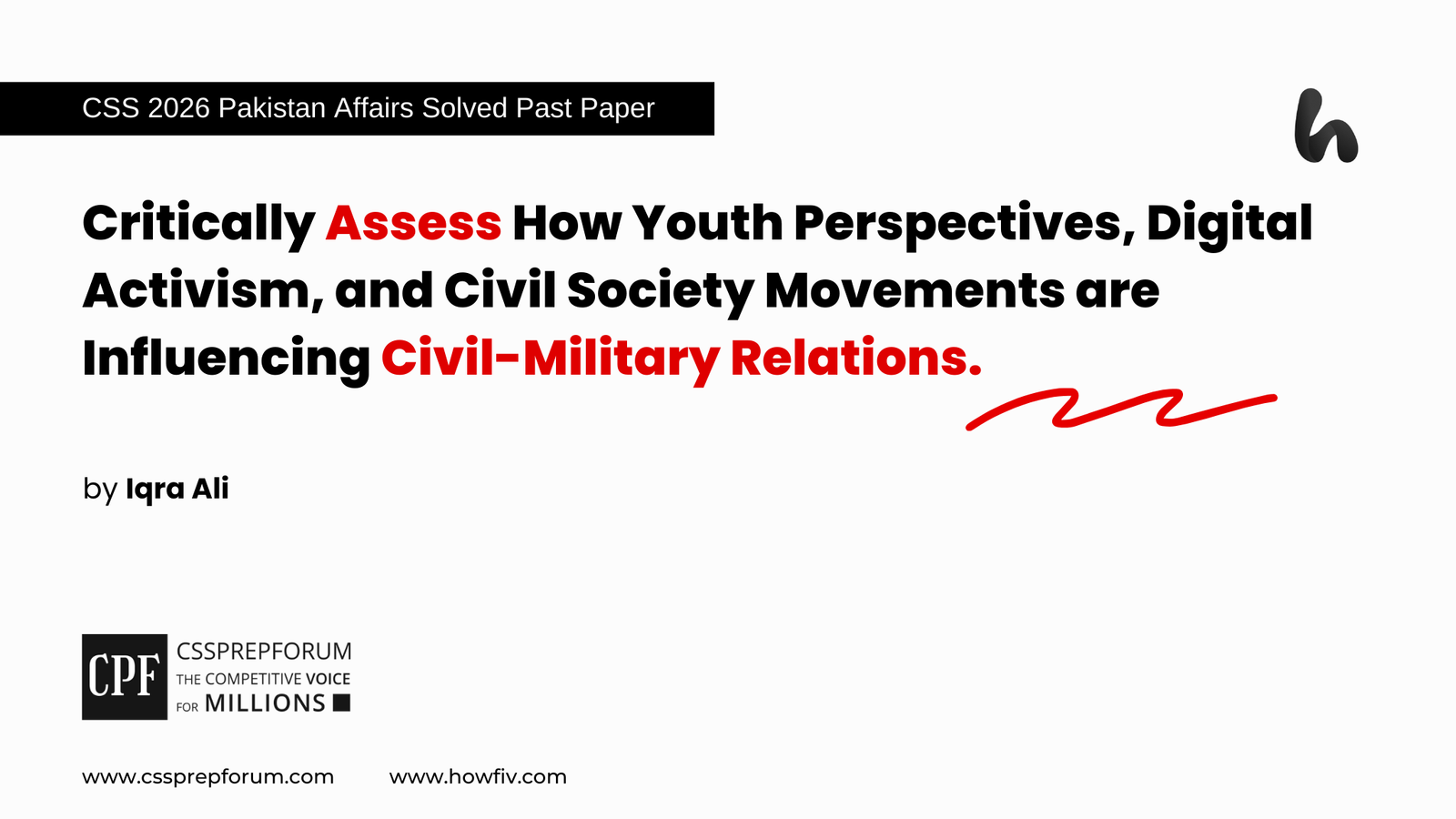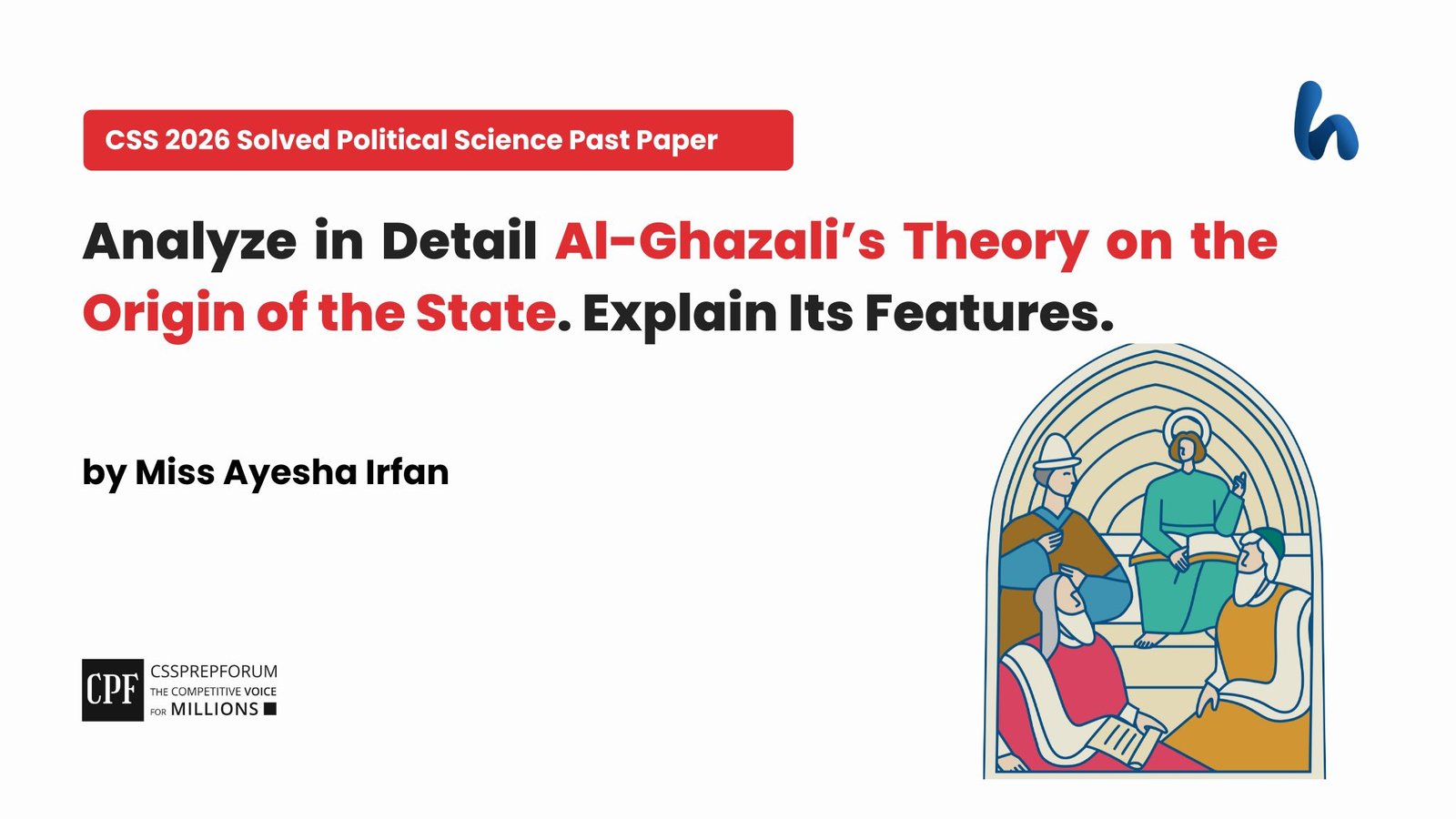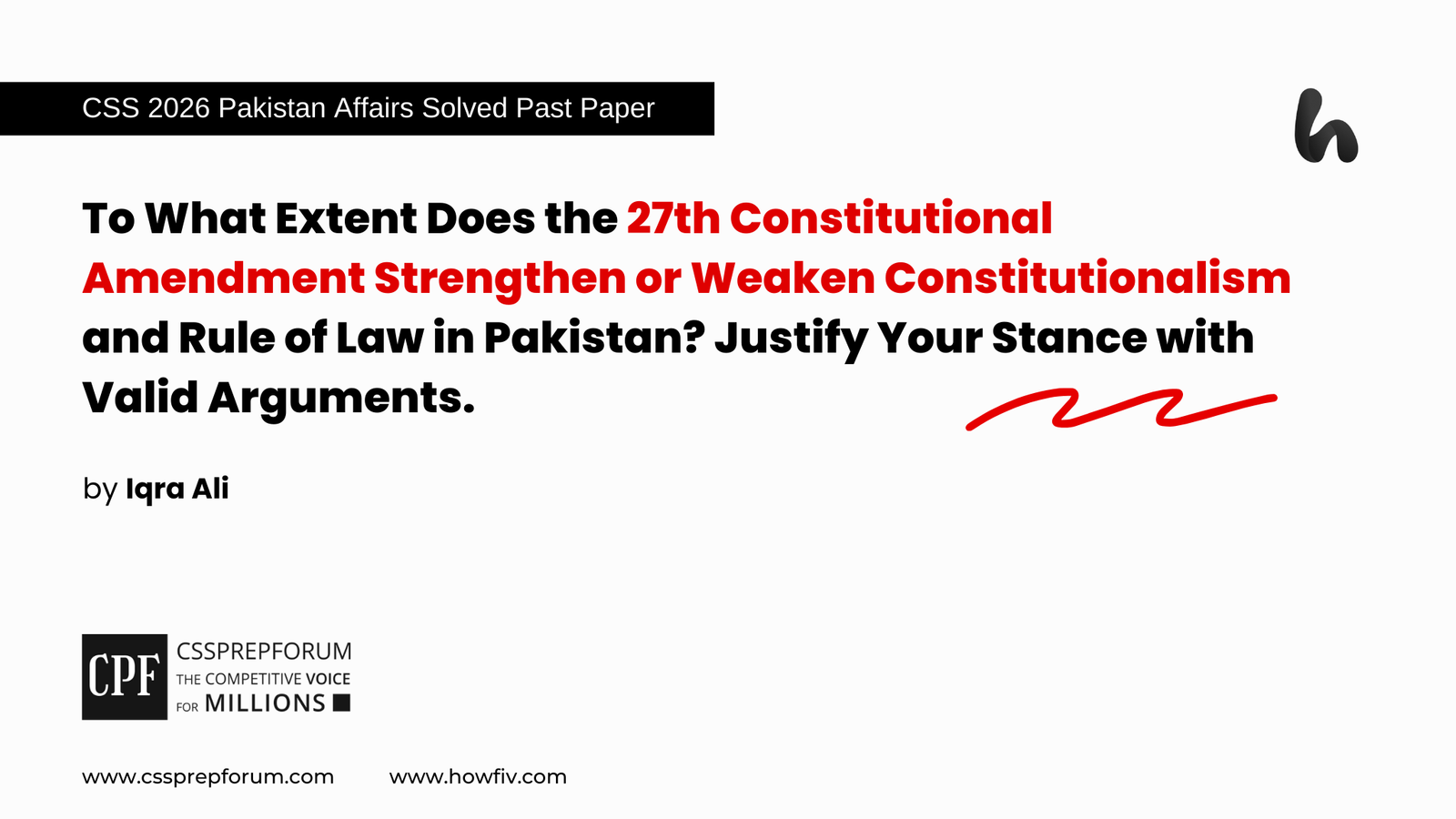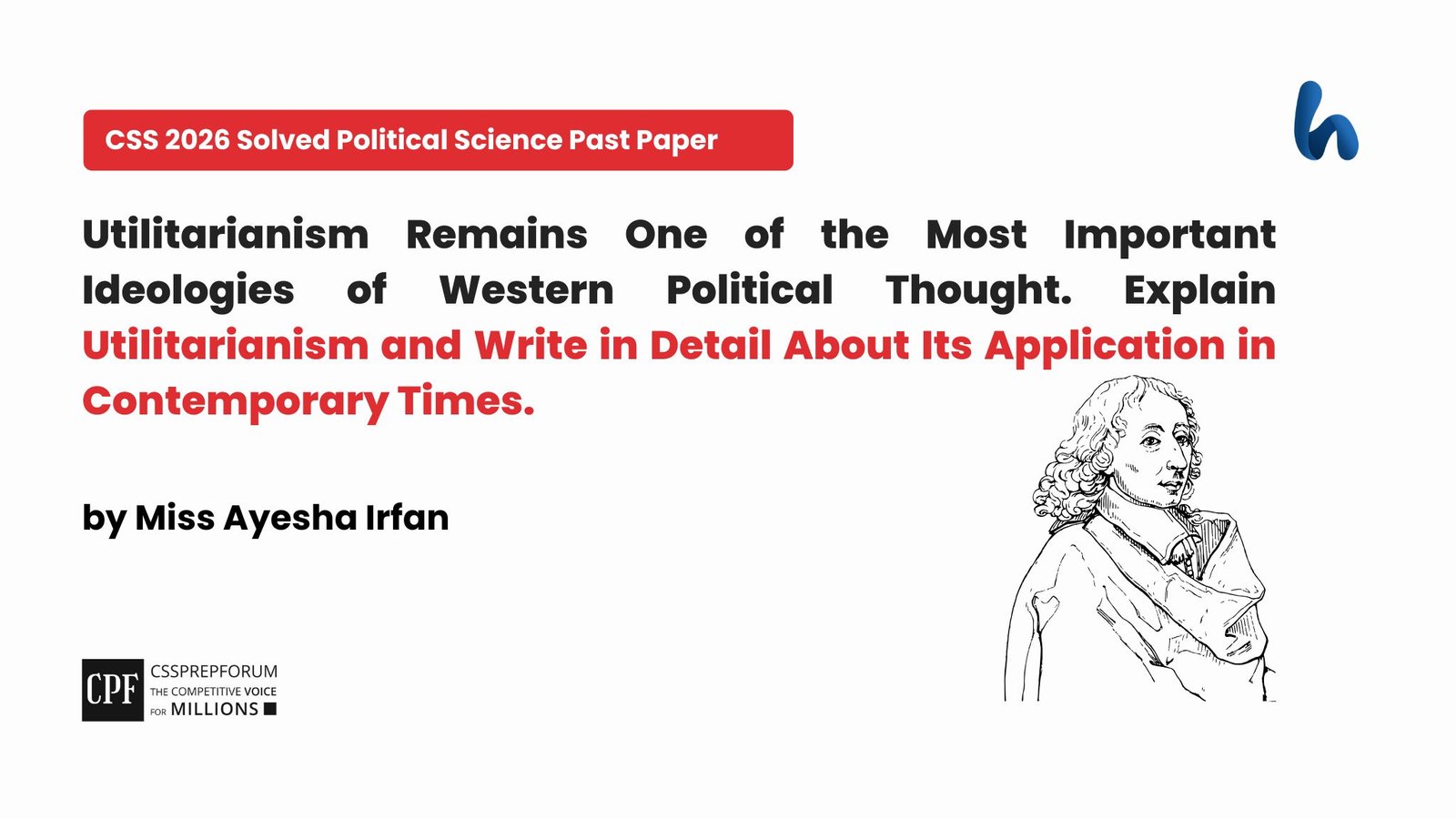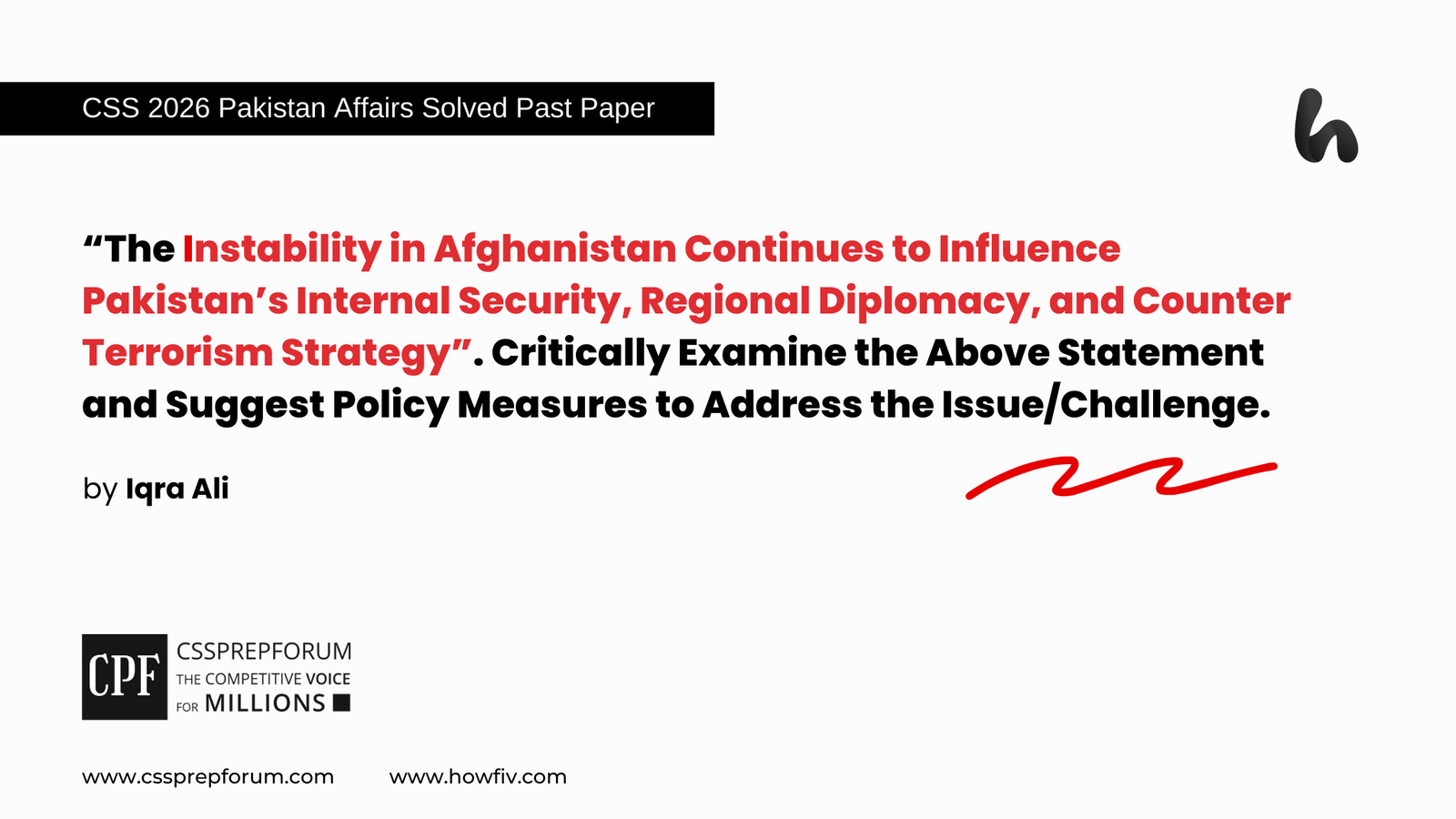Cracking the CSS and PMS Islamiat paper isn’t about cramming facts: it’s about thinking deeply, analyzing critically, and linking Islamic principles to today’s world. If you want to score high, dive into the core themes, quote authentic sources, and write like a thinker and analyst.

The Islamiat paper in the CSS and PMS examinations is not just a test of religious knowledge but an evaluation of a candidate’s ability to critically analyze Islamic principles and their application in contemporary issues. The paper requires a strong conceptual understanding, analytical skills, and the ability to present arguments logically and persuasively. Over the years, examiners have increasingly emphasized thought-provoking and multi-dimensional questions rather than simple factual queries. To excel in Islamiat, aspirants must focus on crucial themes that frequently appear in exams. These include Islamic beliefs and practices, the role of the Quran and Hadith in governance and law, the Seerah of the Holy Prophet (PBUH) as a statesman and reformer, the Islamic political, judicial, and economic systems, and Islam’s perspective on contemporary global challenges. Thus, a structured approach to these topics – coupled with references from the Quran, Hadith, and contemporary scholars – enables candidates to craft high-scoring responses.
Before analyzing the important topics for CSS and PMS Islamiat, it is essential to understand the syllabus outlined by the Federal Public Service Commission (FPSC). The Islamiat syllabus is designed to assess a candidate’s knowledge of Islamic beliefs, history, civilization, and their application to contemporary issues. It emphasizes conceptual clarity, analytical reasoning, and the ability to relate Islamic principles to modern-day challenges. And the core areas include the fundamental beliefs of Islam (Tawheed, Prophethood, and the Hereafter), the significance of the Quran and Hadith as primary sources of Islamic teachings, and the Seerah of the Holy Prophet (PBUH) as an individual, statesman, and reformer. Additionally, the syllabus covers the Islamic social, economic, and political systems, human rights in Islam, the role of Ijtihad and Ijma, and Islam’s response to contemporary global issues. Hence, a strong command over these areas, supported by authentic references, is crucial for scoring high in the Islamiat paper.
- Introduction of Islam
- Study of Sirah of the Prophet Muhammad (PBUH) as Role Model for:
- Human Rights & Status of Woman in Islam.
- Islamic Civilization and Culture
- Islam and the World
- Public Administration and Governance in Islam
- Islamic Code of Life
Further, the CSS and PMS Islamiat examination is not merely a test of knowledge but an assessment of analytical depth and critical thinking. Over the years, certain themes have consistently emerged, shaping the trajectory of Islamiat papers. A comprehensive analysis of past papers from 2010 to 2025 reveals the central topics that demand an aspirant’s focused attention.
A recurring theme is the Importance of Din in Human Life, exploring how faith transcends ritualism and integrates into personal, social, and political spheres. Closely tied to this is the Difference between Din and Religion, a nuanced discussion that distinguishes the Islamic worldview from conventional religious interpretations. Equally significant is Islamic Beliefs and Worships: Spiritual, Moral, and Social Impact, which underscores the transformative role of faith in shaping human conduct.
Additionally, a central focus of the examination is the Holy Prophet (PBUH) as a Diplomat, Military Strategist, and Peace Maker. His leadership, both in times of conflict and reconciliation, serves as a model for governance and international relations. The examination also emphasizes Human Rights and the Status of Women in Islam, countering misperceptions and highlighting the egalitarian principles enshrined in Islamic teachings. Related to this is the Dignity of Men and Women, a topic that examines the Islamic approach to gender equity.
Moreover, understanding Characteristics of Islamic Civilization is crucial. And the themes of Tawhid (Oneness of God), Self-Purification, Dignity of Man, Equality, Social Justice, Moral Values, Tolerance, and Rule of Law form the bedrock of an Islamic society. These principles, though deeply rooted in the past, offer contemporary solutions to modern governance challenges. In this context, Muslim World and Contemporary Challenges has emerged as a pressing area of study. So, from the Rise of Extremism to the Governance under Pious Khilafat, candidates must critically assess how early Islamic models of governance contrast with present-day realities.
Likewise, the examination often features questions on the Particular Letters of Hazrat Umar (R.A) and Hazrat Ali (R.A) to Different Authorities. These documents offer profound insights into administrative ethics and justice in governance. Linked to this is the System of Accountability (Hisbah) in Islam, an essential pillar of Islamic governance ensuring transparency and integrity.
Furthermore, aspirants must also grasp the Salient Features of the Islamic System, dissecting its various dimensions – Social, Political, Economic, Judicial, and Administrative and examine the pious caliphate era in detail. These components provide a holistic framework for understanding Islamic governance. And the Procedure of Ijma and Ijtihad remains a key area of focus, which highlights the dynamic and evolving nature of Islamic jurisprudence.

Mastering these topics requires not just memorization but the ability to articulate well-structured, evidence-backed arguments, and critical thinking. As the CSS and PMS examinations evolve, so too must the aspirants’ approach, engaging critically with the subject matter, contextualizing it within contemporary discourse, and demonstrating a command over both classical sources and modern interpretations. Thus, only through such an approach can candidates hope to excel in Islamiat and secure top positions in these fiercely competitive examinations.
Want to Read Solved Past Paper Questions Related to these Topics?
Click on any year to start reading!
Searching for CSS or PMS Solved Islamiat Past Papers?
Are you preparing for CSS or PMS and searching for solved Islamiat past papers, notes, books, PDFs, and MCQs? Explore them for free on Howtests and Cssprepforum. All content is fully solved and written by Miss Ayesha Irfan. For your convenience, the links are provided below, simply click on any to start reading and preparing.


